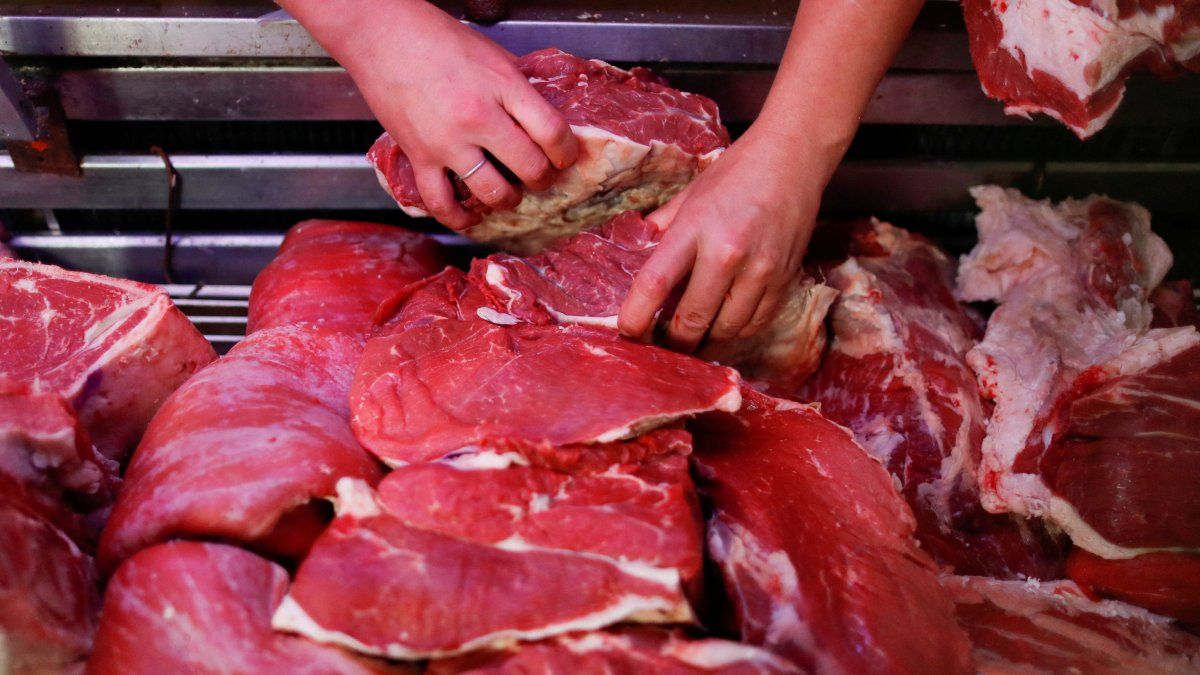Record instead of audio file – vinyl has been celebrating a renaissance for years. But the production capacity is limited. Smaller labels and artists are also feeling this and are breaking new ground.
Daniel Slabschie mustn’t take too much time. The lump of plastic in his hands is about 150 degrees hot. “It’s like a bun out of the oven. You juggle it a bit,” says his colleague Andre Kronert. But it’s not pasta that’s baked in the former potato hall on the outskirts of Güstrow in Mecklenburg-Western Pomerania, but records.
In addition, Slabschie puts the so-called cake (cake), which was previously formed from plastic granules by a machine, into the actual press. Equipped with stampers (stamps), these then press the plate with 150 tons of pressure and at 200 degrees. Then a third machine cuts off the protruding edge – the round is done, which makes vinyl enthusiasts rave.
Speed is of the essence when it comes to production
The first record was only pressed about two months ago at the Matter of Fact company, says Kronert. “We all cried.” Our own pressing plant was born out of necessity. Kronert, who is also a DJ and producer, previously mediated between pressing plants and, above all, smaller music labels and artists. He had the records pressed and sent them all over the world for customers. “The pressing plants we worked with always had longer delivery times.” Years ago it was about four weeks, recently we waited more than a year – too long in the fast-moving music business, especially when an artist has a hit.
After all, their regular pressing plant said from one day to the next: “We no longer press for you. You are too small.” The consequence: “We’ll just do it ourselves now.”
Vinyl is becoming increasingly popular
According to the Federal Association of the Music Industry (BVMI), vinyl sales have increased almost tenfold since 2010 (2021: 118 million euros). Vinyl had almost disappeared from the market from the early 1990s to 2006. In the first half of 2022, according to the BVMI, the German music industry once again generated a good 12 percent more sales of records than in the first half of the previous year.
According to its own statements, the largest pressing plant in Europe is also feeling this: “We have significantly increased our production capacities in recent years and are working on further expansion, but the demand is currently higher than the possible output,” says Optimal Media in Röbel an der Mecklenburgische lake district They produce around 40 million records a year in four shifts, seven days a week. At the Pallas pressing plant in Diepholz, Lower Saxony, one cannot comment on the production of vinyl because of “top secret” contracts.
A mechanical engineering company from Alsdorf in western North Rhine-Westphalia is also benefiting from the boom. In 2015 they were the first in the world to build new record presses again, says Erwin Neubauer, co-founder of Newbilt Machinery. There is now one manufacturer in Sweden and one in Canada. He doesn’t want to talk about competition, “because we couldn’t serve everything anyway.”
With the corona pandemic, demand has increased again. Four times as many machines as before the pandemic are now being delivered – if not more. “90 percent or 98 percent of our customers are abroad.” So far, Newbilt Machinery has specialized in semi-automatic presses such as those used in Güstrow. These machines make it possible to turn a single sheet into a work of art, for example by adding colors by hand.
Neubauer’s colleague Winfried Söllner says: “We actually have musicians as customers who, in their desperation, press their own records.” They would no longer find a place with the big producers. Despite full order books, Newbilt Machinery also wants to supply smaller customers because these enthusiasts would have saved vinyl over time. “It wasn’t done by the big ones. It was the little ones.”
Optimal Media attaches great importance to serving not only majors but also indies. “For our customers, we also produce smaller quantities time and again.” Kronert assumes that there are now four to five smaller pressing plants like Matter of Fact in Germany. In his opinion, the market offers room for a multiple. “Every environment has its bands, which then want to have records.” This is no longer served by the large pressing plants, or only at very high prices and with long waiting times.
And why do people want to buy records again? “It’s something you can touch again,” says Kronert. “It’s just a big adventure. You open it, you have something to read, you have something to listen to.” In these uncertain times, people wanted something back in their hands for their money. “Because I don’t know how many downloads I have, but I do know how many records I have.”
Source: Stern
Jane Stock is a technology author, who has written for 24 Hours World. She writes about the latest in technology news and trends, and is always on the lookout for new and innovative ways to improve his audience’s experience.




